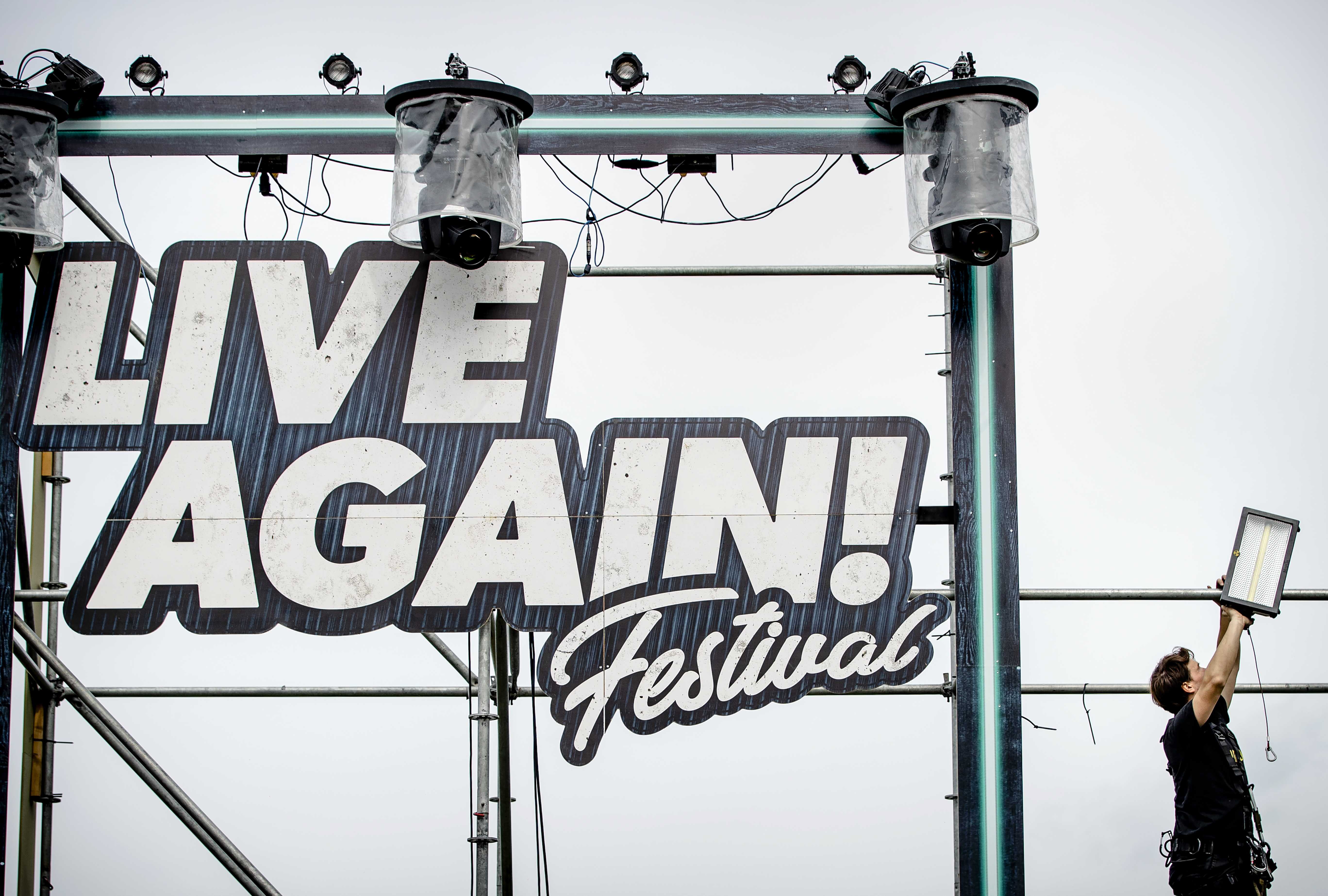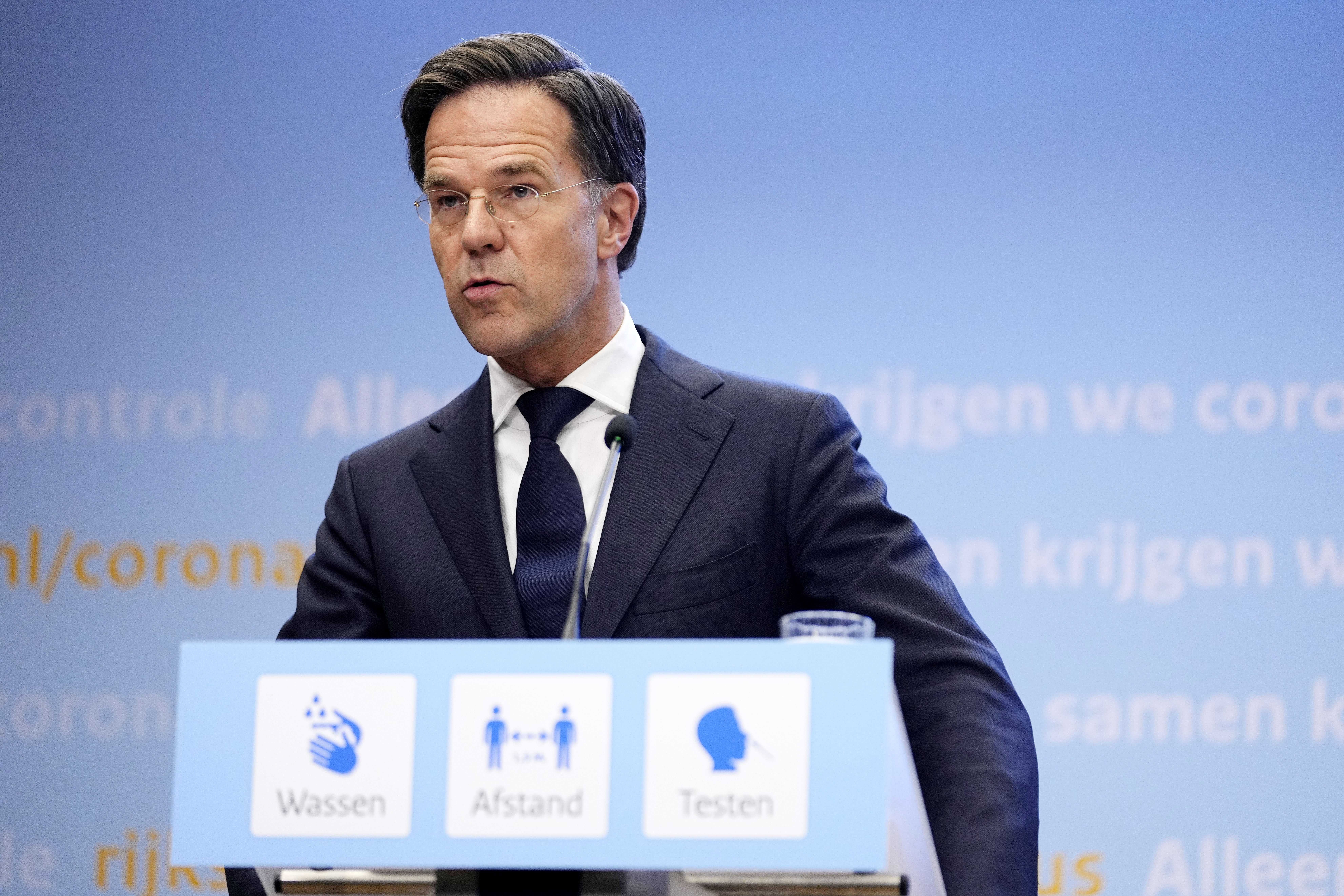After the party ends: Coronavirus infections in Netherlands jump by 500% after country relaxes restrictions
The Netherlands’ experience is a salutory lesson for any country which feels confident enough to lift, wholesale, coronavirus restrictions, reports Leo Cendrowicz

Your support helps us to tell the story
From reproductive rights to climate change to Big Tech, The Independent is on the ground when the story is developing. Whether it's investigating the financials of Elon Musk's pro-Trump PAC or producing our latest documentary, 'The A Word', which shines a light on the American women fighting for reproductive rights, we know how important it is to parse out the facts from the messaging.
At such a critical moment in US history, we need reporters on the ground. Your donation allows us to keep sending journalists to speak to both sides of the story.
The Independent is trusted by Americans across the entire political spectrum. And unlike many other quality news outlets, we choose not to lock Americans out of our reporting and analysis with paywalls. We believe quality journalism should be available to everyone, paid for by those who can afford it.
Your support makes all the difference.First came the easing of lockdown, then came the reimposition of pandemic restrictions, folowed by a humbling apology by the prime minister.
Now comes the reckoning. The Netherlands has learned to its cost that even when three-quarters of its adults are vaccinated, there are still huge risks in reopening. Coronavirus infections have exploded by more than 500 per cent over the last week, the country’s public health institute has said. Nearly 52,000 people in the Netherlands tested positive for COVID-19 over the past week.
With the reopening of nightclubs, the institute found that almost four in ten of the new infections happened in a hospitality venue such as a bar or club. Infections among people ages 18-24 surged by 262 per cent, followed by a 191 per cent rise for 25-29 year-olds.
After restrictions in Dutch nightclubs were lifted on June 26, coronavirus infections surged twelvefold to their highest levels in a year: from just 806 cases a day on July 1, they reached 3,646 on July 7 and 10,345 on Saturday, July 10. Even as a seven-day rolling average, the numbers rose tenfold between June 30 and July 12 to 6,667. That works out at 345 cases per million, with only Britain (477) and Cyprus (1,012) having higher infection rates in Europe.
On Tuesday, for the first time since the start of the coronavirus pandemic, the reproduction (R) number had climbed to over two other people, reaching 2.17. The spike in infections has not yet led to a notable rise in hospital admissions, but the government has now warned that this could be threatened by the current “unprecedented” increase in infections.
Around 1,260 people likely went to nightclubs in the past two weeks while they were infected, according to data analyst Martijn de Riet, who says this led to around 30 superspreader events. But while the government blamed irresponsible, infected youngsters for faking QR codes to get into venues, Mr de Riet says the real issue was a testing system with too many false negatives.
“It means that 0.3% of last weekend’s 420,000 tests were falsely negative. That’s 1,260 people with Covid19 who happily went into the pub with a green tick mark,” he said. “There is no reason to believe that cheating QRs are the cause of this outbreak. This is pure gaslighting.”
The Dutch experience is a salutory lesson for any country that feels confident enough to lift, wholesale, coronavirus restrictions.
The experiment lasted barely two weeks.
From June 26, Mark Rutte, the PM announced that face masks would, in most cases, be ditched. No limits were set on the number of guests allowed in stores, bars and restaurants. “This is a special moment,” he said. Mr Rutte was not wrong.
The plans were reversed by early July after the massive spike in infections, with bars, restaurants and nightclubs closed once again to indoor service last Friday. Mr Rutte on Monday offered his mea culpa to the nation.
“What we thought would be possible, turned out not to be possible in practice,” he said. “We had poor judgement, which we regret and for which we apologise.”
Now, the country’s top virologists claim their warnings about easing lockdown rules at the end of June were ignored by politicians.
The country’s Outbreak Management Team (OMT), which advises the government about pandemic measures, said a planned ‘test for entry’ system used to reopen venues like nightclubs would not work because the rapid antigen tests had a failure rate of around 20 per cent, according to de Volkskrant, a Dutch newspaper.
OMT officials also criticised Health Minister Hugo de Jonge, who blithely encouraged young people to take the single-shot vaccine jointly made by Johnson & Johnson and Janssen - using the slogan ‘dansen met Janssen’ (dancing with Janssen) – with the implication they could go out partying sooner.
However, that was in the face of official advice for people to wait two weeks after their shot to build up maximum immunity.
Virologist Annemiek van der Eijk, from Erasmus University Medical Centre in Rotterdam, has warned that one vaccine dose is not enough to protect people.
“We need to explain it even more clearly: you are not protected after one vaccination,” she said.

“And if you have already had the coronavirus, the Alpha or Beta Variant, then you are not protected against the Delta Variant either. Those antibodies you’ve had before do nothing or very little against this variant. You can be infected again and then you are contagious again for others.”
The vaccination campaign in the Netherlands has gone relatively fast, rolling out a total of 100 vaccine doses per person so far, including 66 first doses - or single shots in the case of Johnson & Johnson/Janssen.
Amongst adults, more than 46 per cent of the population is fully vaccinated and at least 77 per cent have had at least one shot. However, the vaccination rate is slowing as the campaign reaches out to younger people, who are less enthusiastic about getting their shots. Just over 1.23 million people were vaccinated against the coronavirus disease last calendar week, whereas nearly 1.67 million were given a shot during the week ending June 13.
The reimposition of measures has been met with anger from the hospitality and events sectors, with the 1.5m social distancing requirement back in place and many festivals forced to cancel. Entertainment company ID&T, joined by 30 organizers of dance festivals and major events, has filed a lawsuit against the Dutch state to overturn the restrictions, with the Dutch Event Organisers’ Federation said it was "sad and furious" about the government’s decision to reimpose curbs.
Join our commenting forum
Join thought-provoking conversations, follow other Independent readers and see their replies
Comments